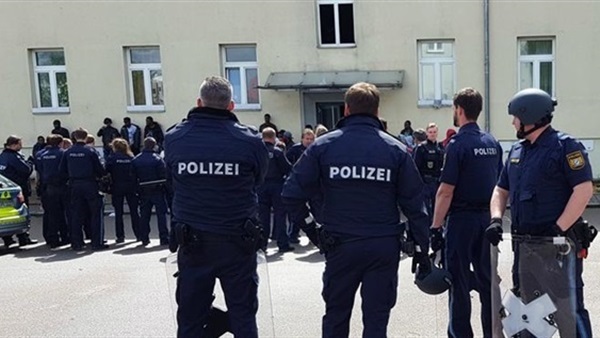The Reference reveals terrorist hotbeds in Germany

The terrorist attack carried out by
Tunisian Anis al-Amri, which took place in December 2016 in Germany, is till at
the center of the German authorities’ attention. Although al-Amri was killed in
Italy, the German authorites are trying to unveil how the funding process
happened. However, it is rather compicated to trace the terrorist operations in
the European Union.
The Reference, through its Berlin-based editor , has managed toreveal
means used by the terrorist groups to get their funding. The Reference has obtained
a number of documents that show how difficult to track the financing of
terrorist operations as well as the tasks aiisgned to these terrorists.
Al-Amri was involved carrying out
the Dec. 19 attack, in which 12 people were killed at the Christmas Market. The
German newspaper Bild said on Friday that the police were examining video
footage to search for individuals who helped Amri.
According to the information we collected,
the German police have raided a number of places Amri used to visit. Amri had pledged
allegiance to the takfiri Islamic State. The places included a money transfer
office, affiliated with Western Union. It is located in Karl Marx Street in
Berlin's Neukölln district, which is known for large comminity of Arabs and
Turks.
Amri transferred money to his
mother, Nour al-Hoda, through this office using his asylum card from Germany.
He transferred three amounts of money worth 800 euros, 600 euros and 200 euros
,respectively, in 2016.
The police tracked the transactions
in January 2017 a few weeks after terrorist attack and his escape to Italy. The
police obtained copies of these transactions to identify their legality.
Amri used fake passports to receive money
transfers from Turkey and other countries from another office in the same
neighborhood, taking advantage of legal loopholes, which are used by gangs in
Berlin and other German cities, These gangs, in accomplice with some money
transfer offices, get remittances without documents, taking advantage of weak measures
taken by the German police in this regard.
On the legal ways to deal with funding
terrorist groups, Dr. Awad Shafiq, professor of international law at the Higher
Institute of Law in Geneva, Switzerland, said that the presence of a large
number of ISIS members in Europe in general and Germany in particular, would
make it complicated to pursue them.
Therefore, Germany should be claimed
responsible if it is unable to face this kind of criminal operations.
Germany is obliged under the
Security Council Resolution 1373. There are obligations pertaining the
criminalization of funding terrorism and terrorists as cited in the first in
paragraphs “1” and “b” of article 1.
The Security Council Resolution 1373
stated that the states shall prevent and any financing to terrorist operations and that the
states should criminalize the providing terrorists
with funds or collecting funds by any means directly or indirectly. This prase is very similar to what the 1999
Convention had stated.
Article III of the 1999 Convention says
that the convention will not apply if the offense is committed within some state
and the suspect is a national of this state and is resident within its
territory, and no other state has, under paragraph 1 or 2 of Article 7, claimed
judicial authority.
The measures stated in the Security
Council Resolution 1373 are not subject to these measures.
The professor added that Germany
should take measures in its national laws to criminalize any acts related to
the financing of terrorism, and penalize these crimes, especially since the
crime of funding terrorism should be penalized separately.
He noted that individuals in
accomplice are penalized only if the main
suspect in convicted.





